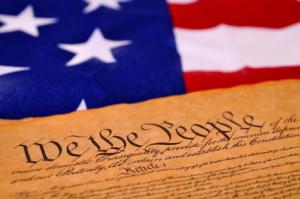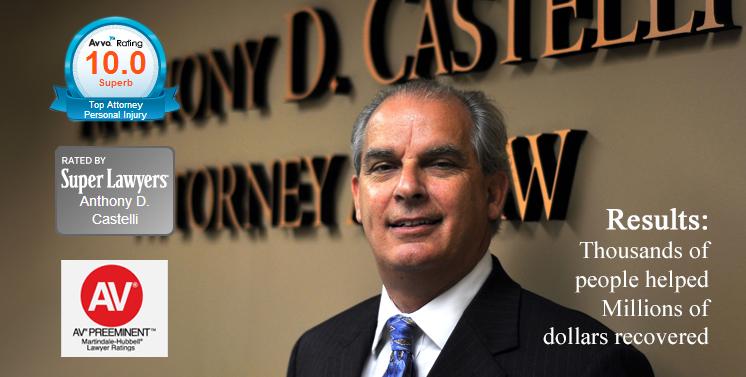Posted: July 28, 2015
Earlier this year Attorney Anthony Castelli of the Law Office of Anthony D. Castelli, put forth the first annual Veteran's College Scholarship in honor of his father Joseph Castelli, awarded the Bronze Star for World War II combat bravery.
In order to win the scholarship, among other things, the applicant had to submit an essay answering the question what is, The American Military's Place in Preserving Freedom for the United States.
There were multiple applicants with many great essays to choose from. But the one you will read below took a unique persperctive and was well thought out and well documented. We are pleased to announce our winner is Sarah Riley Wells from Springfield Missouri. She is a senior at Central High School where she carries a 4.0 GPA. She has been accepted into the 6 year medical school program at the University of Missouri at Kansas City. Both of her grandfathers served in the military.
This was to be a $500 scholarship. But the VFW local saw the offering and added $150 as part of their support for the military. We are thankful for our friends at the VFW

American Military’s Place in Preserving Freedom for the United States
Roosevelt was preparing the nation for war in his 1941 State of the Union Address. Known today as the Four Freedoms speech[1], Roosevelt distilled our concept of liberty down to four items:
- Freedom of Speech
- Freedom of Worship
- Freedom From Want
- Freedom From Fear
Norman Rockwell memorialized these concepts in four famous paintings.
Although controversial at the time, I think most of us would accept this definition. Freedom of speech and worship appear every day in our national discourse. Their meaning is clear. Freedom from want and fear are more ambiguous. They’re not terms we use today, but they encompass familiar concepts. Pursuing the “American Dream” is how we find freedom from want. Access to that dream is provided by equal opportunity. Justice, civil liberties, the military, and the ability to seek redress of grievances are the tools that free us from fear.
Roosevelt was telling the nation that to preserve these freedoms we would need to defeat Fascism. The rest of his speech is rarely mentioned but worth noting. He makes the point that only once, during the Civil War, was the nation truly in peril. The military had fought in many campaigns, but these were to protect commerce or American interests. His purpose was to emphasize the severity of the current threat. We could invert that logic, however, and evaluate our recent conflicts in the same vein. Have our wars been about freedom and sovereignty, or are they about protecting lesser interests?
As I write this on Memorial Day weekend, the safe thing is to wax eloquently about sacrifice, fill these pages with patriotic rhetoric, and never really address the question. I could do that. To equate war—the military’s primary domain—with freedom is natural. But like Orwell’s “war is peace” motto, it’s also shortsighted. Our military does preserve our freedom. It’s just not as simple as the Facebook memes would have it. I’m going to identify what I see as tangible threats to our freedom, and offer five ways today’s military preserves it.
The first threat is the obvious one: hostile invasion. We often imagine ourselves surrounded by enemies massing to strike. Protected by two great oceans, we are practically invulnerable. Nevertheless, existential threats could arise.
More likely, we can face internal threats if our institutions aren’t resilient enough. Fear is a powerful force. In an era of stateless terrorism, we have the capacity to sacrifice our freedom for an illusion of security[2].
Freedom House, a research organization, evaluates the status of freedom around the world. They report the greatest threat to freedom in America is racial inequality[3]. If you accept as axiomatic that individual liberty should be broadly distributed to all citizens, then our system (whatever the cause) is flawed. A criminal justice system skewed to incarcerate 1 in 3 black men and thereby deny many of them the right to vote runs counter to this broadly distributed freedom. Likewise, access to the American Dream is limited by a wide gap in socioeconomic conditions exacerbated by race.
To summarize, the threats to our freedom can come from external militant forces and from internal social problems.
The military was the vanguard in establishing racial equality. Much criticized as being “social experimentation,” integration within the ranks was very successful. With its discipline and professionalism, the military did what no other component of society could do. They knocked the wind out of those arguing that discrimination was the natural order of things.
The effort continues today. No organization is as color-blind as the military. That same zeal is being applied to female and gay service members. Again, this effort is not without controversy or failure, but it will succeed. Before I was selected for medical school, I had three nominations to the Naval Academy. The interviewers volunteered in detail the military’s commitment to ending discrimination and sexual harassment. They are leading the way for the rest of the nation.
Second, the military offers opportunities to those who otherwise have none. The military can take a young person, regardless of background, and teach them job skills. Beyond that, they learn teamwork, how to follow instructions, and accountability. The Montgomery GI Bill and other programs provide educational opportunities. For many, the military can be a safe harbor—a family—that gives them a better life, i.e. freedom from want.
Third, veterans make good citizens. Of recent, citizenship is characterized by rights and entitlements[4]. We don’t consider its obligations, but veterans are an exception. One need only browse the Internet to find countless examples of veterans helping each other (or ordinary citizens). They take the concept of brotherhood to heart. We don’t have that same commitment in civil society, and we benefit by their example.
Fourth, the military is fervently apolitical. It’s part of their professional creed and contributes greatly to the trust placed in them by the public. We don’t fear our military. Our officer corps submits itself to civilian control by its professionalism, not just by law[5]. In other countries with a strong military (think of Egypt), they are perennially interfering in the affairs of state.
Our military protects us from fear-inspired excesses. They do this simply by being professional and trusted. Fear mongers will always peddle some threat for political gain, but that fear can be assuaged if there’s no doubt in our military’s ability to prevail.
And finally, the military fulfills its primary mission. It deters any credible threat to the sovereignty of the United States. No nation can seriously contemplate an invasion of the United States. Our Republic is well defended, and can only be diminished by what we choose to do to ourselves.
[1] "Our Documents: Four Freedoms." Franklin D. Roosevelt Presidential Library and Museum. N.p., n.d. Web. 20 May 2015.
[2] Ludlow, Peter. "Fifty States of Fear." The New York Times, 14 Jan. 2014. Web.
[3] Puddington, Arch, Thomas O. Melia, and Jason Kelly. Today's American: How Free? New York: Freedom House, 2008. Print.
[4] Sheehan, James J. "The Future of Conscription: Some Comparative Reflections." Daedalus 140.3 (2011): 112-21. Web.
[5] Huntington, Samuel P. The Soldier and the State: The Theory and Politics of Civil-military Relations. Cambridge: Belknap of Harvard UP, 1957. Print.
The Law Office of Anthony D. Castelli offers experienced and compassionate advocacy for personal injury victims. With over 32 years experience Cincinnati personal injury lawyer Anthony Castelli in uniquely positioned to offer the Castelli diifference where you, the accident victim, always comes first.


